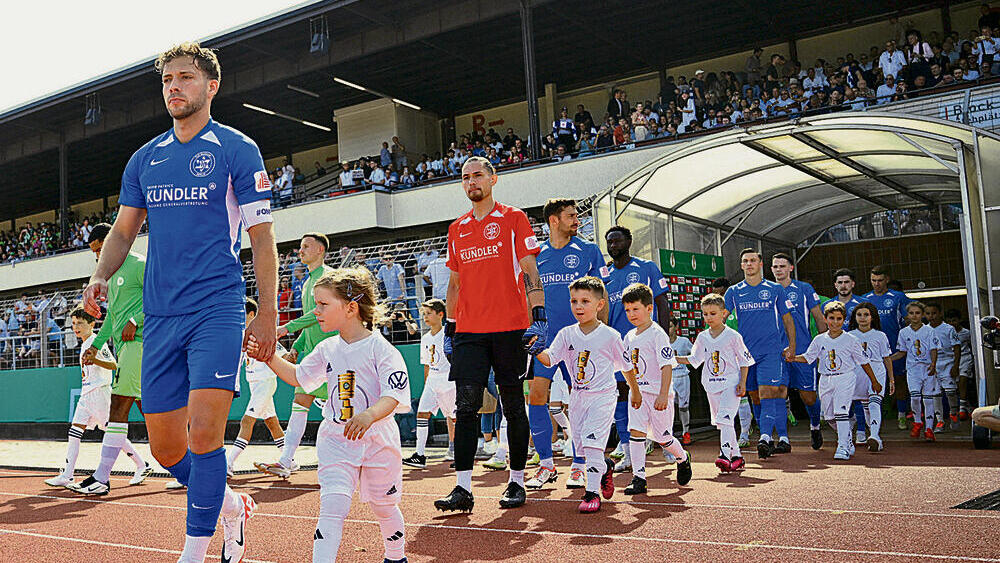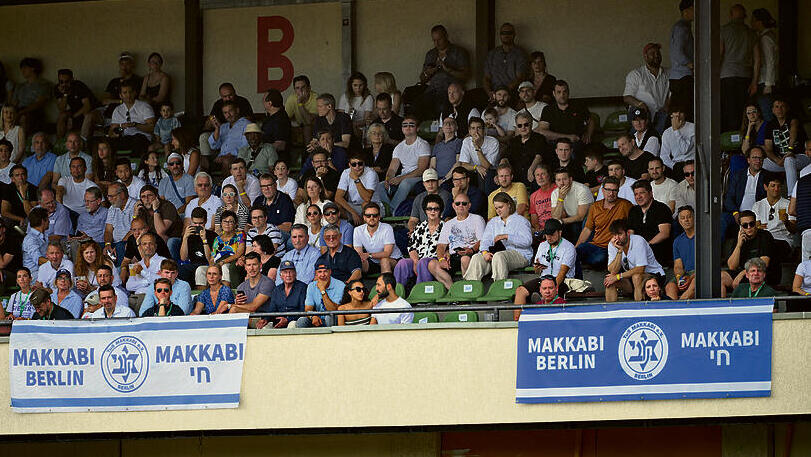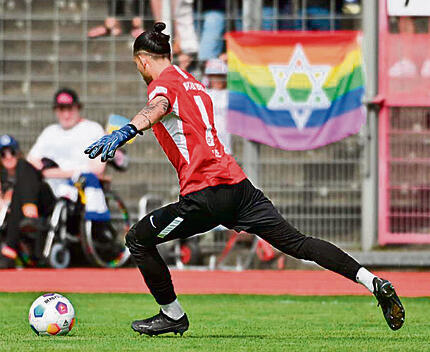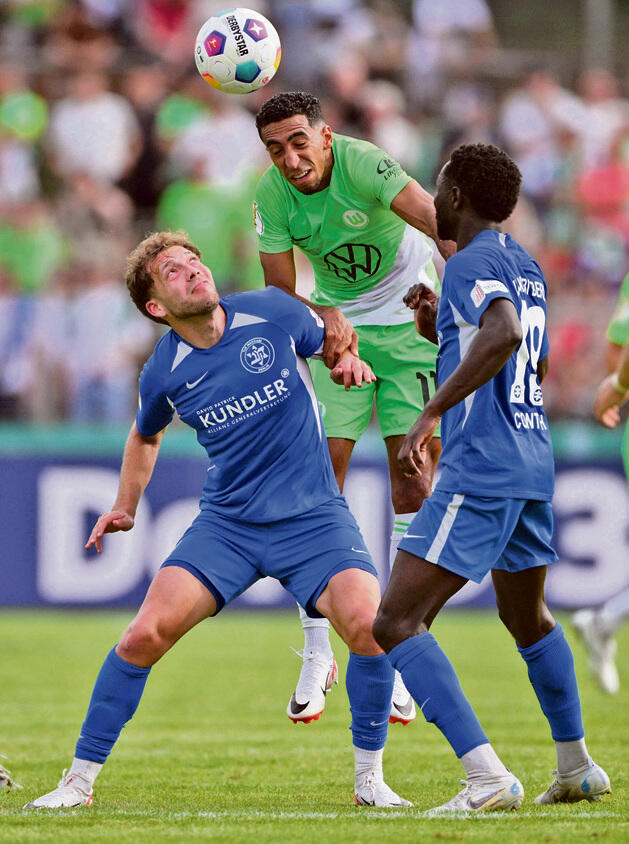When the members of the Makkabi Berlin soccer team, hailing from the fifth league in Germany, prepared to face off against Wolfsburg from the Bundesliga in the DFB-Pokal cup match, all they really needed to do was cast their eyes back to the past to the team's inaugural game in 1971 to dispel any lingering pessimism. Nothing could be worse than the 15-1 defeat that the team suffered back then.
More stories:
Optimists had been tossing around a potential score of 0-4 in favor of the Wolfsburg squad this week, while realists whispered about a respectable "honorable goal" in a 7-1 scoreline. But this time, the match ended with a decisive 0-6 in Wolfsburg's favor. However, the result mattered far less than the mere participation itself. So, before delving into the match, let's take a step back: the German DFB-Pokal Cup was formed in 1935, just two years after the rise of the Nazi regime. Naturally, the regime did not allow Jews to participate in such competitions, and Makkabi Berlin's game marks the very first participation of a Jewish team in the cup. For all those who have been connected to the club, this is a statement – an assertion that, despite everything, we have arrived.
The club is essentially the continuation of Bar Kochba, a sports association that had 40,000 members at its peak until it was dismantled by the Nazis in 1938. The current club, with 550 members and branches in Munich and Dusseldorf, sponsors teams for soccer, basketball, gymnastics, tennis and chess. But the crown jewel is soccer. After the team secured promotion to the fifth league, it also clinched the trophy of the lower leagues in the Berlin district, ensuring the team's participation in the German Cup.
Despite the club's clear Jewish identity – the jerseys proudly display the Star of David – the squad comprises players from 15 different countries, including Iran, and represents a diverse range of faiths.
"We are absolutely delighted with our integration, and we take pride in having any player who wishes to represent a club with Jewish roots, identity and culture," explains Michael Koblentz, a committee member.
Papa Alioune Diouf is a 36-year-old Muslim player from Senegal who joined the club as a player in 2017 and also serves as the youth development coordinator and coaches kids under age 10. "Religion holds no significance here," says Diouf. "What matters is that you love coming here to play soccer, to inspire and empower the children."
"We aim to be active in promoting our Jewish identity," says Doron Bruck, the team captain.
"We don't want to hide, and we refuse to be in the position of victim. We want to be a successful club. We have players from various countries and continents," says 69-year-old coach Wolfgang Sandhowe, who formerly served as an assistant coach at FC Nuremberg and Gladbach, and to whom the recent successes of the club are attributed. "The most important thing to me here is to lead a team that feels like a family."
How close-knit and diverse is Makkabi Berlin? One of the players on the team proudly displays a pair of tattoos adorning each of his calves above the knee – the word 'peace' in Hebrew and Arabic.
Even before the game starts, the stark difference between Makkabi Berlin and Wolfsburg is evident in the contrast between the fans' camps. Wolfsburg's fans came to celebrate the official season kickoff, waving green-white flags, singing fervently, and igniting flares.
The Jewish crowd of Makkabi unfurled banners against antisemitism and in support of LGBTQ rights and chanted "Yalla, Makkabi," cheering when the referee blew the whistle for the game's start and brandished a yellow card to a Wolfsburg player after just two minutes. And for an added touch of symbolism, the referee for the match is Dr. Rim Hussein, a professionally accomplished pharmacist, born in Germany to Palestinian parents.
"We'd like to believe it's just about sports," says fan Yona Mayer. "But it's clear to all of us what this represents. It's a club that's a continuation of something erased by the Nazis. It's Makkabi against Wolfsburg, a team representing a massive industrial enterprise in Germany that had a role in the mechanism of the Holocaust and mass murder, exploiting forced Jewish labor. Our facilities and field are named after Julius Hirsch, a player who represented Germany and was murdered in the Holocaust."
"I think it's simply wonderful that we drew them," adds Dirk Reiman, a Wolfsburg fan who brought his wife and three children to the game on a specially planned train journey. "Not only because it's our first game of the season and an easier opponent, but also because I want my kids to see this – a Jewish club in Berlin playing soccer just like we do against Bayern Munich. It's not just in theory, history or newspaper articles about antisemitism. For me, it's the best answer to antisemitism."
One can't escape the context, even by trying very hard. One of the club's founders survived the ghetto and went into hiding with his mother in a windowless basement for two years, while the captain, Bruck, was once called a "Jewish pig."
There are players who were attacked in the park for wearing the club's jersey. There's a player who was threatened with having his legs broken for playing in a Jewish club. Players from rival teams tried to taunt them with broken bottles. Players from another rival team saluted them with obscene gestures. They received Instagram messages saying, "Jews, crap, you have no place in Germany, haven't you learned from what happened here?"
And, after all that, there's a hookah in the locker room, and the team's players celebrate their goals with rhythmic singing: "Messiah, Messiah, Messiah."





